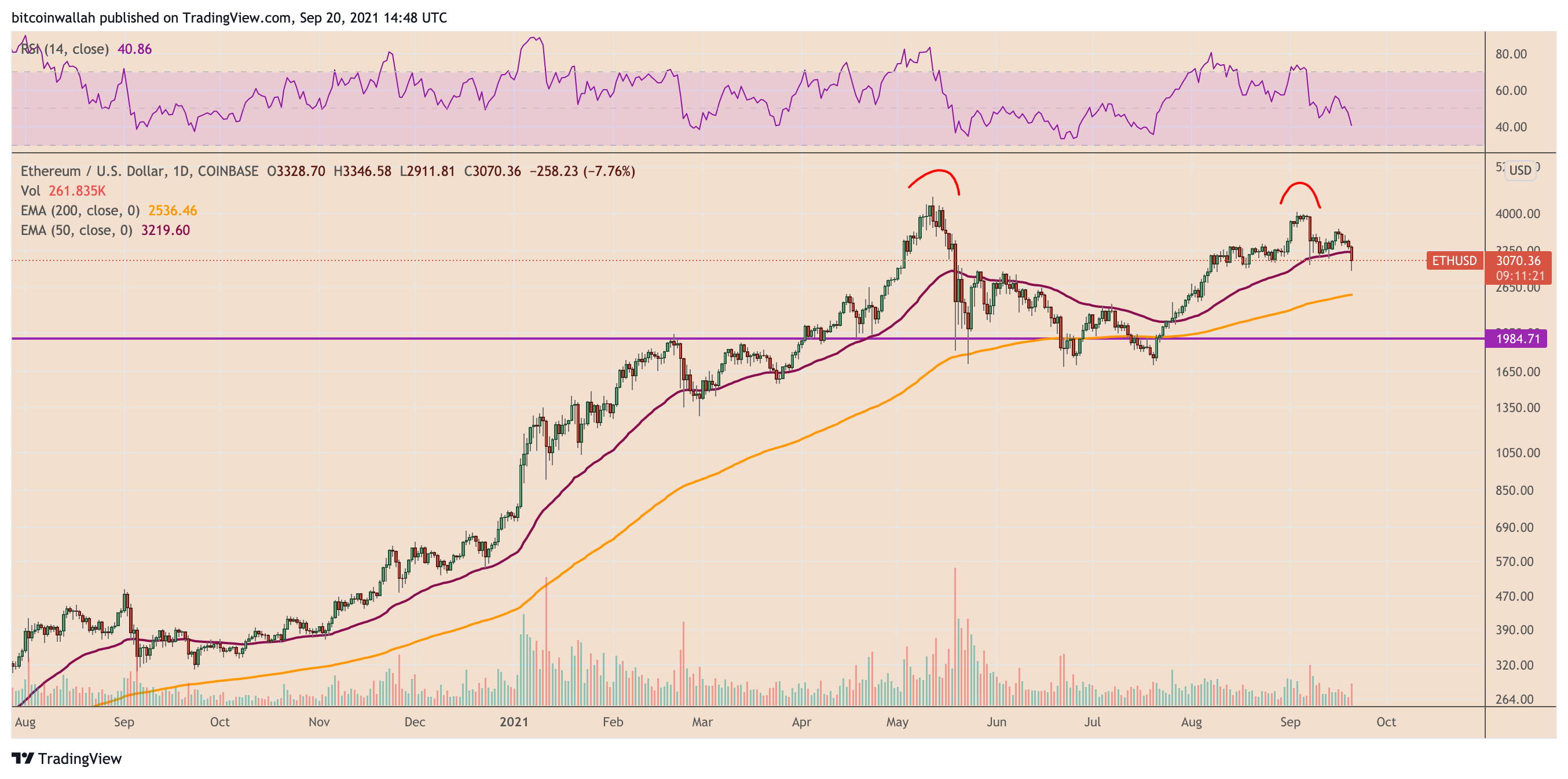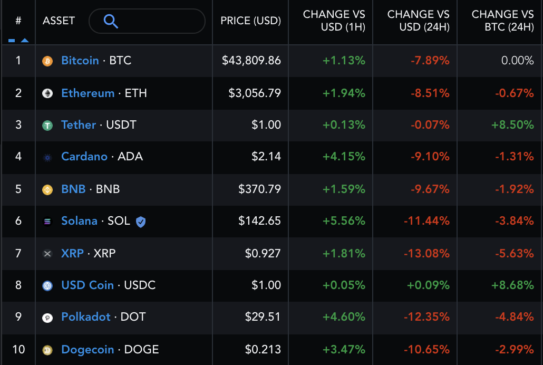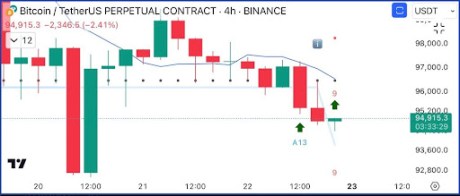Ethereum’s native asset Ether (ETH) prices slumped on Sept. 20 amid a broad selloff in the cryptocurrency market, led by worries about a potential housing bubble crisis brewing in China.
The ETH/USD exchange rate dropped as much as 12.52% to $2,911 on the Coinbase exchange, hitting its lowest levels since the beginning of August 2021. Elsewhere in the crypto market, Bitcoin (BTC), Binance Coin (BNB), Cardano (ADA), Solana (SOL), and other top tokens plunged in tandem.
The drop imitated the mood in the broader market as U.S. equities plunged following a day of red in both the Asia-Pacific and European indexes. On the other hand, the U.S. dollar and government bonds surged on haven-buying.
At the core of Monday’s sell-off was a liquidity crisis at Chinese property developer Evergrande. The world’s most indebted property developer faces obligations of more than $300 billion to creditors. That also includes a critical interest payment deadline on its offshore bonds, arriving this Thursday.
DW noted that if the Evergrande topples, it could bring many banks down with it, same as the Lehman brothers did during the 2008’s housing bubble crisis in the U.S.
Although Ether does not trade in sync with global markets, its 30-day correlation with Bitcoin, the leading digital asset exposed to macroeconomic fundamentals, sits near 0.85. As a result, the altcoin appeared to have faced an indirect consequence to China’s looming housing crisis.
Bearish pattern triggered
The latest bout of selling in the Ethereum market also triggered a classic bearish pattern, which has a 75% accuracy when it comes to hitting its downside targets.
Dubbed the “Double Top,’ the pattern develops after the price rallies strongly, pulls back, rises again towards the previous peak, and corrects all over again — all while standing atop so-called neckline support. Ultimately, the price falls below the neckline and targets levels located as deep as the distance between Double Top’s peak and the neckline.
Ether appears to be halfway through while painting a Double Top pattern. The cryptocurrency’s chart below shows that it topped near $4,385 on May 12, fell towards the neckline support of $1,984, and rose back to another sessional peak of $4,030 on Sept. 3.

If the Double Top pattern flourishes, the ETH/USD rates could extend their ongoing selloff toward $1,984 for a potential breakdown move afterward. Nonetheless, it does not look feasible for ETH/USD to drop aggressively below the $1,984-neckline.
The level also is near the Ether’s 50-week exponential moving average (50-week EMA; the velvet wave) currently at $2,118, offering another support layer to safeguard Ether’s bullish bias. The wave has earlier acted as an entry-level for bulls following sharper ETH/USD pullbacks.
Related: Ethereum killers or just pretenders? But Ether remains king for now
At the same time, on a daily timeframe, the next support line for Ether appears near its 200-day EMA (the orange wave) at $2,536. Thus, a sharp pullback from the said level could negate the Double Top setup.

Fundamentals
Ether continues to eye adoption against Ethereum’s role in backing the booming decentralized finance (DeFi) and nonfungible token (NFT) industry. In the recent SALT conference, Cathie Wood, the CEO of Ark Invest, also said that investors should allocate at least 40% of their crypto portfolios to Ether.
Ark Investment CEO @CathieDWood‘s confidence in Ethereum and Bitcoin is growing.
Projecting a 10x growth rate over the next five years, the firm’s crypto exposure is likely to be split: 60% BTC and 40% ETH. https://t.co/VQCZhVCD3m
— Cointelegraph (@Cointelegraph) September 15, 2021
Excerpts from Wood’s statement:
“I’m fascinated with what’s going on in DeFi, which is collapsing the cost of the infrastructure for financial services in a way that I know that the traditional financial industry does not appreciate right now.”
The views and opinions expressed here are solely those of the author and do not necessarily reflect the views of Cointelegraph.com. Every investment and trading move involves risk, you should conduct your own research when making a decision.




